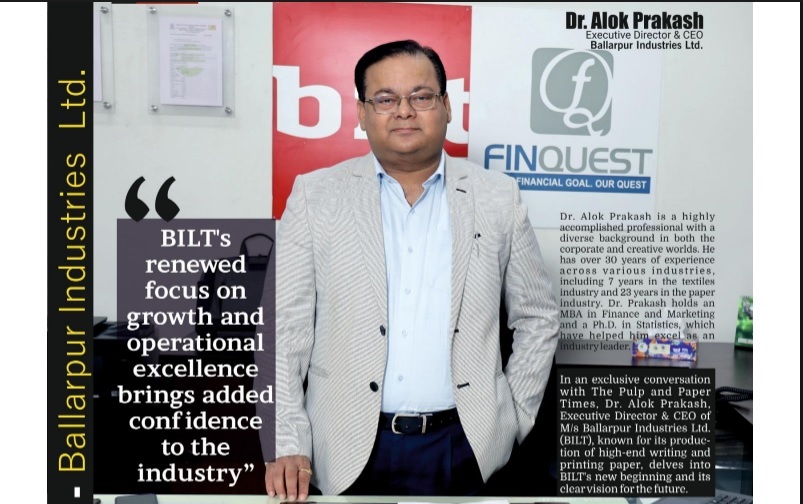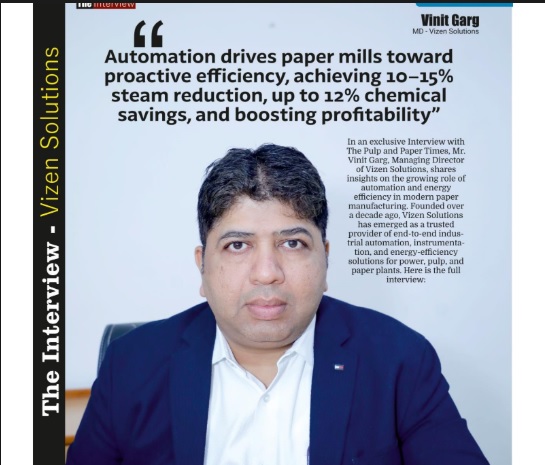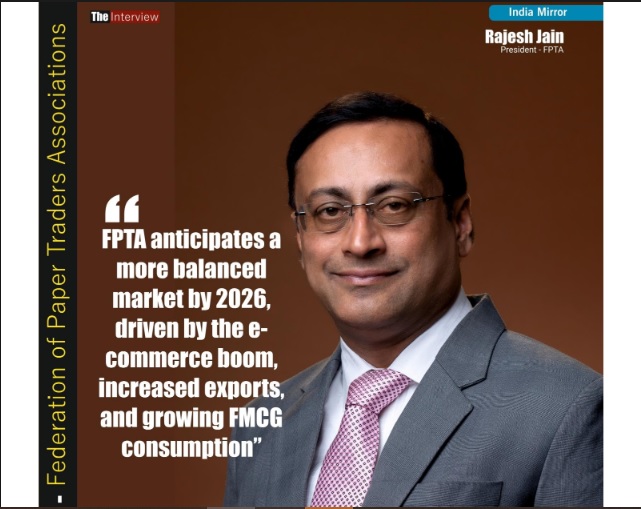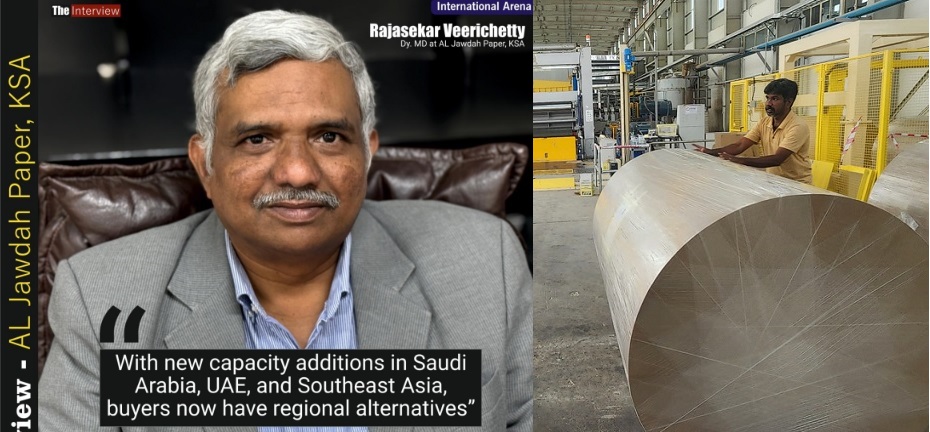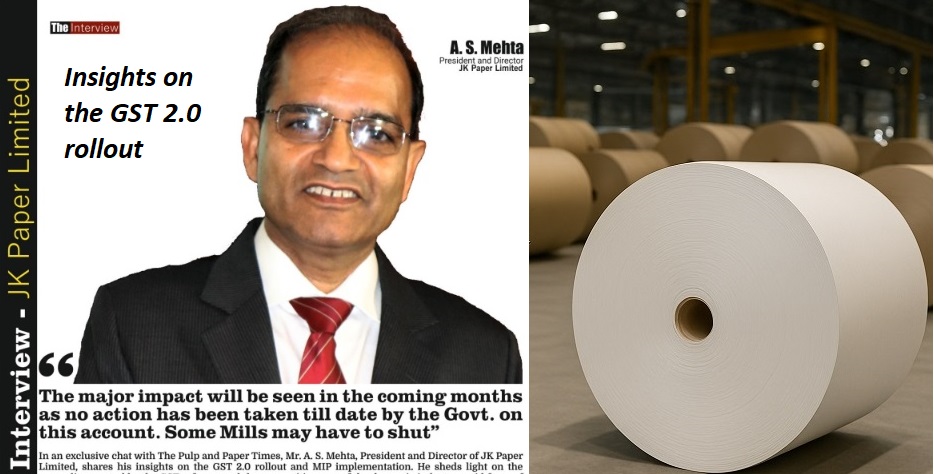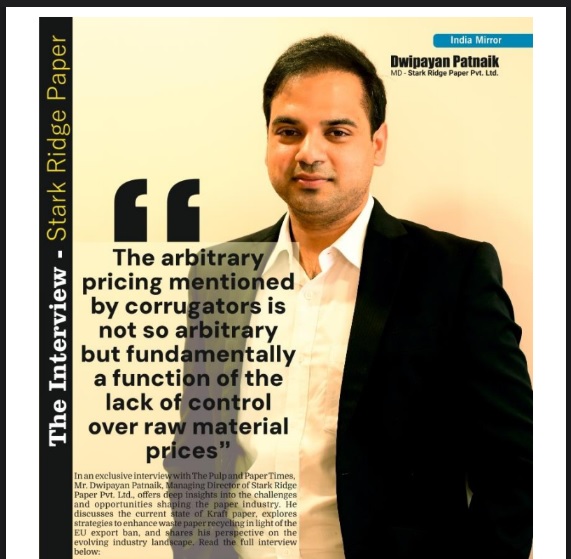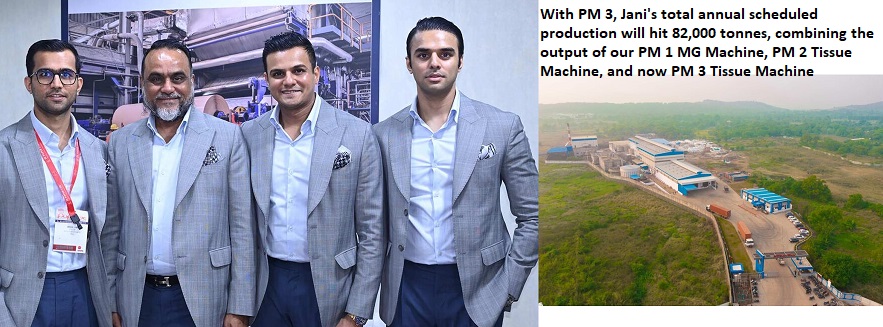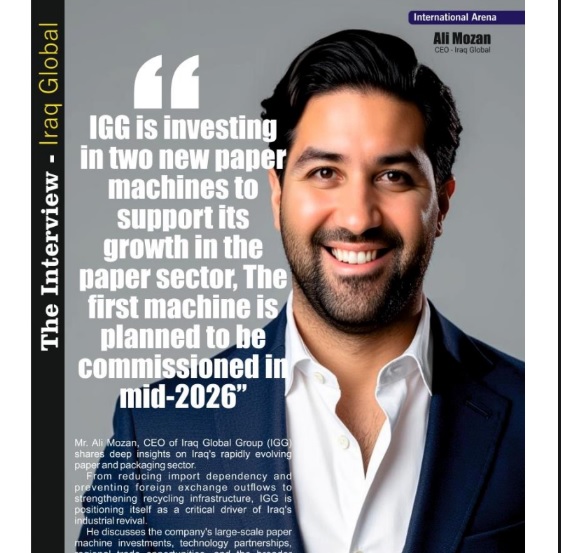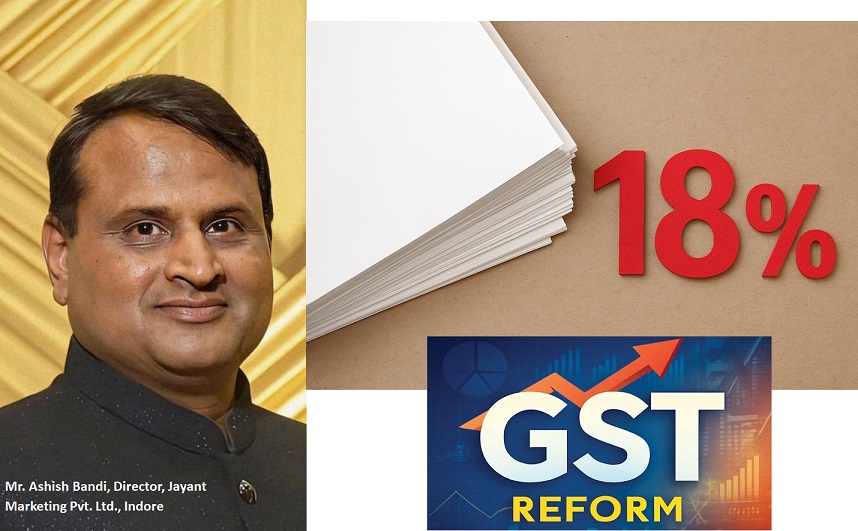Planning to establish a 50-tpd tissue paper plant utilizing 100% virgin fiber, says Mr. Kanti Kumar Bajaj of Krishna Tissues
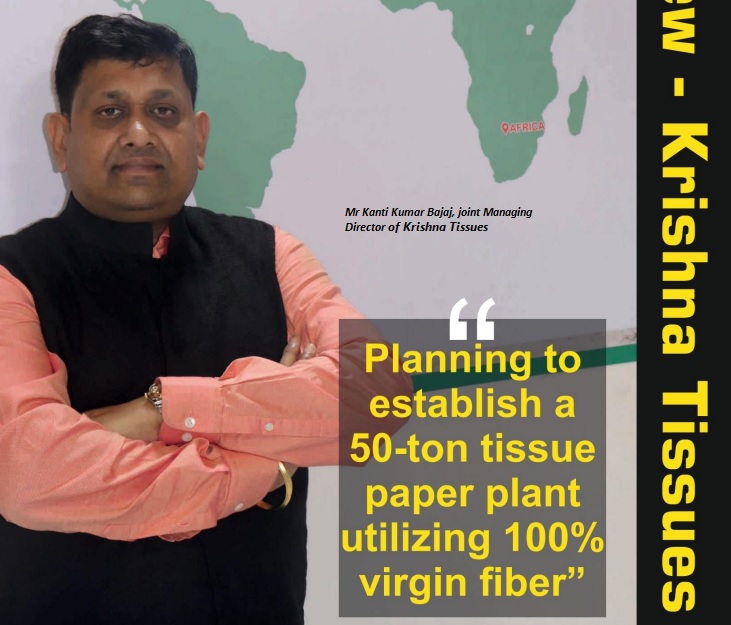
Planning to establish a 50-tpd tissue paper plant utilizing 100% virgin fiber, says Mr. Kanti Kumar Bajaj of Krishna Tissues
“we must be prepared to pay higher prices for waste paper, ultimately passed on to consumers”
“Subdued demand causing mills to sell Kraft paper below optimum prices”
Krishna Tissues Pvt. Ltd. is a pioneering force in West Bengal's packaging landscape, renowned for crafting top-tier packaging solutions. With advanced paper plants, we specialize in coated duplex board, Kraft liner, Test liner, Absorbent Kraft, Gypsum Board, and White Top Kraft Liner. Our ethos revolves around sustainability, evident in our eco-friendly practices and upcoming initiatives like an innovative boiler fueled by plastic rejects. Committed to innovation, we're set to launch a state-of-the-art tissue paper plant by late 2025 or early 2026. Join us as we redefine packaging excellence, driven by a vision of sustainability, innovation, and unparalleled quality. Here is his full interview of Mr Kanti Kumar Bajaj, joint Managing Director of Krishna Tissues, given to The Pulp and Paper Times:
Q: Please give us a small introduction to your company?
We are Krishna Tissues Private Limited, based in West Bengal. We operate two paper plants there. One is for coated duplex board, where we produce high-quality Coated Duplex Board with gray back and white back. Additionally, we have a Kraft/Test Liner plant where we manufacture high-quality Kraft Liner, Test Liner, Absorbent Kraft, Gypsum Board, and White Top Kraft Liner for packaging. Our primary focus is on packaging.
Q: As you know, the waste paper market is experiencing turbulence, which greatly impacts Indian paper mills. How do you analyze the waste paper market currently and in the future?
Waste paper is abundantly available worldwide, contingent upon price fluctuations. Currently, prices are stable. Although we are acquiring waste paper at acceptable prices presently, I anticipate no significant price hikes in the future due to decreased exports and domestic demand. However, I foresee increased demand and changing sentiments in the paper industry by 2024.
Q: There's a shortage of quality fiber in India, and Europe possesses an abundance of long fiber. Many new capacities are emerging in Europe, which may create a shortage for Indian Paper mills. How do you plan to manage your daily requirement of long fiber in such conditions?
The procurement of long fiber depends on pricing dynamics. When demand outstrips supply, prices naturally rise. Consequently, consumers must support increased prices. To remain competitive globally, especially against paper mills in Vietnam, Malaysia, Thailand, and other countries, we must be prepared to pay higher prices for waste paper, ultimately passed on to consumers.
Q: Continuously increasing prices has two drawbacks—cost competitiveness and the potential for foreign players to introduce their paper in India at lower prices. How do you plan to address this?
I doubt that recycled fiber from outside paper mills can be exported to India, as the price difference is minimal (5 to $10 difference), and local mills operate on narrow profit margins efficiently. While imported virgin fiber-based materials may be a possibility, I don't foresee recycled fiber being imported into India now or in the future.
Q: In the worst-case scenario of a long fiber shortage in India, what solutions do you see to sustain the industry or potentially manufacture long fiber domestically?
India lacks the production of long fiber, primarily relying on hardwood. Long fiber, typically derived from softwood, is not produced in India due to climatic and tree availability factors. Thus, we must import long fiber from Europe or America. However, as India's per capita consumption increases, local mills will have access to more waste paper. Additionally, global waste paper exporters primarily target Asian markets, including India, ensuring continued supply.
Q: Do you believe Kraft paper prices have stabilized, or do you anticipate fluctuations in the future?
Kraft paper prices are currently depressed, but I anticipate potential increases as demand rises. However, the availability of waste paper currently isn't the main issue; rather, it's the subdued demand causing mills to sell Kraft paper below optimum prices.
Q: Have you introduced any new products recently?
Yes, we have recently introduced Absorbent Kraft, Gypsum Board, and Virgin Top Duplex Board, which has received positive feedback from consumers. These products complement our focus on high-quality packaging boards, and we're also considering setting up a tissue mill in Eastern India to cater to the growing demand for tissues.
Q: With two existing units, are you planning any expansions or significant modifications?
We are installing an eco-friendly boiler that utilizes our plastic rejects as fuel. By the end of 2024, we aim to increase our daily paper production from 900 to 1200 tons. Additionally, we plan to introduce 2-3 value-added products related to coating to enhance production efficiency.
Q: You mentioned plans for a tissue paper plant. Could you provide more details on this?
Certainly, we're planning to establish a 50-ton tissue paper plant utilizing 100% virgin fiber. This facility will include a converting line to manufacture high-grade tissues under our brand for domestic consumption and export. We anticipate the plant to be operational by late 2025 or early 2026.
Q: How do you view competition from Bangladesh, considering the emergence of new capacities there?
Bangladesh primarily imports Kraft paper, but I believe their growing consumption will necessitate localized production. India isn't a major Kraft paper supplier to Bangladesh, so any impact on Indian mills is likely minimal.
Q: If you were to explore new segments for Kraft paper utilization, what would they be?
New segments for Kraft paper utilization could include the food sector, particularly for primary packaging. Given the shortage of long fiber, Kraft paper could serve as a substitute for folding box board, especially in container board production
Web Title: Planning to establish a 50-tpd tissue paper plant utilizing 100% virgin fiber, says Mr. Kanti Kumar Bajaj of Krishna Tissues




 Join WhatsApp Group
Join WhatsApp Group Join Telegram Channel
Join Telegram Channel Join YouTube Channel
Join YouTube Channel Join Job Channel (View | Submit Jobs)
Join Job Channel (View | Submit Jobs) Join Buy Sell Channel (Free to Submit)
Join Buy Sell Channel (Free to Submit) Paper News Headlines Channel (Free to read)
Paper News Headlines Channel (Free to read)



